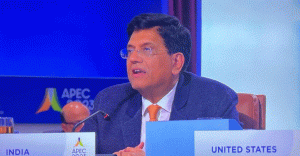
Many quick- and e-commerce firms have reportedly received notices from the Central Consumer Protection Authority (CCPA) for allegedly violating mandatory declaration rules of the Legal Metrology Act. Mint explains the law and how the CCPA protects consumers. What are these firms accused of? According to CNBC-TV18, the CCPA, part of the consumer affairs ministry, has sent notices to 11 e-retailers including Blinkit, Zepto, Swiggy Instamart and Meesho for allegedly failing to add basic information on products, such as manufacturing and expiry dates.
They have also been accused of violating other packaging and labelling norms—these also apply to manufacturers and wholesalers of consumer goods. The CCPA sent notices after hundreds of consumers complained of getting perishable products close to or after their expiry dates. The companies have 15 days to respond, the media reported.
What does the law say on packaged goods? A 2011 amendment to the Legal Metrology Act, 2009, says every pre-packaged item must carry information on its weight, the quantity of goods, dimensions (if relevant, such as for clothes), dates of manufacturing and expiry (or best before use), details of the manufacturer and the maximum retail price. All the details must be printed in ‘standard units’, such as rupees for price, grams and kilos for weights. The law goes into even greater detail about how products should be labelled.
As per the law, all information must be printed in English or Hindi in the Devanagari script, but sellers can also include other languages. What happens if these firms are found guilty? Legal metrology officials can inspect and seize any amount of goods suspected to violate the Act. Penalties can range from 10,000 to several lakhs.
Repeat offenders can get up to a year in prison along with a fine. CCPA officials might also ask these e-retailers to give them a list of dealers and brands from whom they may have got these faulty goods. What other laws can the CCPA invoke? In November last year, the CCPA introduced guidelines to prevent online platforms from using dark patterns to trick customers.
These guidelines specified 13 categories of dark patterns including basket shaming, false urgency and subscription traps. E-commerce firms are also governed by the Consumer Protection (E-Commerce) Rules, 2020. Last week, the CCPA introduced guidelines to protect consumers from ‘greenwashing’—misleading brand claims about sustainability and environmental impact.
Will it get tougher for sellers to advertise? On the face of it, yes. Apart from CCPA’s actions, other rulings could impact them. The Supreme Court ruled in June that all advertisers must certify every single ad they run online with the website of the Press Council of India (PCI) and get a self-declaration certificate.
This was part of a ruling against misleading ads run by Baba Ramdev’s consumer firm Patanjali Ayurved. There are nearly 118,000 ads registered on the PCI portal. And these are only a fraction of the actual number of advertisements we see on the internet.
.














